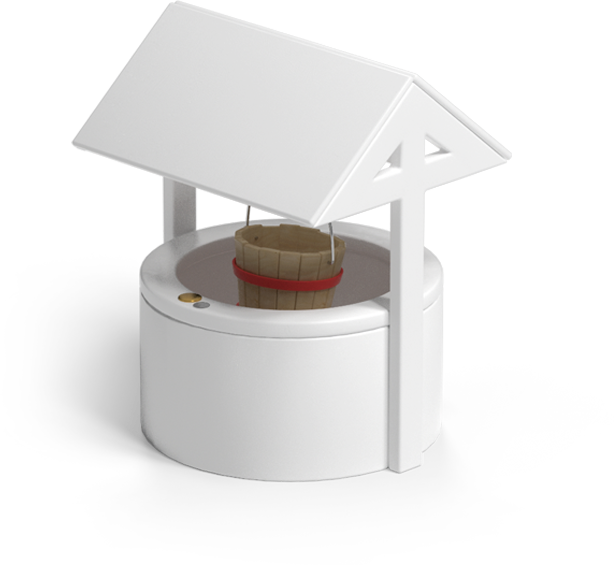Commercial v Residential Property Investment: What’s The Difference?
Investing in property is a long established method of earning regular income and accumulating assets, but you can also accumulate problems. The property market can be a difficult arena and one where you only have limited control. One of the main factors you need to consider is whether you wish to invest in commercial or residential property.
By Jon Howe6/12/20

Investing in property is a long established method of earning regular income and accumulating assets, but you can also accumulate problems. The property market can be a difficult arena and one where you only have limited control. Investment of any kind carries an element of risk, but particularly so in property, and one of the main factors you need to consider is whether you wish to invest in commercial or residential property.
Property investment has always been at the mercy of external forces and especially at the moment. Unknown Brexit repercussions, several high street names in financial trouble and changes in tax treatment are all influencing the property market both in terms of residential and commercial property. Many traditional staples of the property market are also changing, with house prices falling in London where the market is saturated, while other areas of the UK are thriving, such as the burgeoning might of the Northern Powerhouse, which has traditionally been a much cheaper area to live.
The markets for commercial and residential property are very different and involve several unique considerations. It is rare to combine investment in both markets, but it can be done. However, they each involve a very different approach and ambitions, so a budding property investor will most likely make a choice at an early stage and follow a certain path, having carefully researched the landscape and the potential benefits and pitfalls of each.
Here, we will run through these considerations and establish what might be the best property market for you. After all, you are in property investment to maximise your returns, whatever your career aspirations or personal circumstances are. So understanding each market and what is involved is essential to which route you choose. So let us help you.
What is commercial property investment and what is residential property investment?
There are essentially three types of commercial property; retail, industrial and offices, although there are of course some that don’t fit into any of these categories. Commercial properties are usually run by professional management companies, and hence investment is more of a business deal with them, rather than a day-to-day involvement in a property.
New-build commercial properties are usually built in areas showing economic growth and demand, and so are very susceptible to the local economy and therefore investment appeal can fluctuate quite dramatically. The attraction of existing commercial properties is influenced by the same market forces, but of course, you are investing in an established area with more historical information upon which to base your judgement.
With residential property investment, you are buying properties to rent out, preparing contracts, finding tenants and making money from rental yield % and any equity you build whilst owning the property. In this respect, commercial and residential property bring similar types of rewards, but commercial lease contracts are typically much longer and more watertight, making them secure and reliable, but also harder to get out of if problems are encountered.
Residential property for investment usually involves mid-sized properties suitable for students, young professionals or young families. These can be older terraced houses with plenty of bedrooms or new-build flats or apartments, but they aren’t usually luxury properties of higher than average value. This means that the level of investment required to get into residential property will always be of a certain level. Commercial property investment can be of a comparable level, such as a single shop or a small hotel or bed & breakfast, but at the other end of the scale, commercial property investment could involve buying an office block, a small retail park or a complex of industrial units.
Essentially, the scope, flexibility and demands of each market are very different and you really need to assess the characteristics of each one to really understand the pros and cons and weigh up which is the right one for you.
What are the characteristics of commercial property investment?
We have talked already about the longer lease structure of commercial property, which perhaps offers more security, and the market is also open to a broader range of investors, simply because there is a greater variety of properties available. Therefore, it is perhaps easier to find a commercial property that suits your needs and offers the scope of ambition and growth that you want.
As you are dealing with professional management companies, commercial property investment is more of a business deal, and hence is less emotive than buying a house, possibly doing it up yourself and then finding tenants. With commercial property, you are likely to be paying management fees to acquire, refurbish and let the property and it becomes easier to spread these costs across a portfolio of properties, if and when you have built them up.
There are lots of finance options for buying a larger commercial property, such as:
- A standard mortgage
- Bridging finance
- Investment fund (direct or indirect)
- Collective investment scheme
- Investment trust
- SIPP (self-invested personal pension scheme)
You will need professional advice to assist you in finding the right finance vehicle to make the acquisition and to cover the potentially complex legal procedure of buying and letting the property. This also includes making an accurate valuation of the property in the first place. Valuing a commercial property is not as straightforward as valuing a house. There are lots of socio-economic reasons why a warehouse in one area may be worth considerably more or less than an identical one in a different area. Essentially, you are looking at both the property and the commercial value of what it has to offer. Therefore, the valuation of a commercial property can be far more volatile and hard to predict or quantify.
Undoubtedly the management of a commercial property takes up far less time, as you will sub out any initial refurbishment and ongoing maintenance and repairs, and you most likely won’t be involved in finding tenants. However, on the flipside, there is a lot more to consider in terms of the legal aspects, such as the purchase, the lease, tax obligations and contracts.
What are the characteristics of residential property investment?
For the most part, residential property investment involves the buy-to-let sector. In many respects, this is quite easy to get into and the initial stages are very much the same as buying your own house and involve the same disciplines and know-how. So you can largely draw on these experiences and adapt your knowledge of the property market, before using professional legal help for the drawing up of tenancy agreements and applying more specialist knowledge for finding tenants and managing the property.
Generally speaking, there is no heavy legal work involved in residential property investment and making money from increasing the value of the equity you invest is essentially the same as for your own house, in fact, you might release some of this to fund the investment you plan to make. So general knowledge can be adapted easily to suit this new market.
Many buy-to-let landlords choose to manage the property themselves, though you do have the option of using a letting agent or management company. The work and therefore time involved in managing a residential property can be restrictive, and this also applies to the costs of refurbishment, maintenance or covering periods where you have no tenants, this can all eat into your rental income and make this sector less attractive.
The value of your property can be influenced by the buy-to-let market you choose, for example a student house is never likely to rise that much in value, simply because that market doesn’t expect particularly high standards and student houses are typically located in areas established as such, whereas a young professional and young families have different needs and hence these properties will reside in different areas that could potentially carry more attractive values.
What is unavoidable, however, is that with residential property investment you are at the mercy of the housing market in terms of your equity, and we all know how this can fluctuate. There have also been stamp duty restrictions applied to the buy-to-let market in recent years, which have turned many investors off.
Market demand for residential property is also more influenced by demographic shifts than the commercial property sector. The changing jobs market, student debt, the struggle for first-time buyers to get on the property ladder, people getting married later in life, these all help to boost the buy-to-let market and create flexibility in the properties people look for. In a business sense, commercial property doesn’t spark such demand. Premises are very specific in terms of their suitability for certain purposes, ie. a shop, a factory, a hotel or a restaurant. Of course, premises can be adapted for different uses, but the market demand is not as fluid and the potential tenants out there are therefore more selective. As a result, you may end up buying a commercial property in a location you didn’t at first expect to, simply because demand is different.
This level of demand in the residential sector does help deliver reliable and sustainable income, which investors crave, but you have to balance that with the short-term nature of buy-to-let agreements. Nevertheless, the level of demand for buy-to-let properties has led increasing numbers of institutional investors to the buy-to-let sector and not just entrepreneurial or private investors.
The liquidity factor
Liquidity is the degree to which a property can be quickly bought or sold without affecting its price, and this is a key factor in deciding which investment sector is right for you. In the commercial property sector, liquidity is a major factor, particularly with many investments tied up in long leasehold agreements and money often coming in via property funds in order to raise initial capital. Many such funds did not react well to the EU referendum vote, for example, and similar to the 2008 banking crash, commercial property values reduced as a result and, in general, more severely than residential properties.
While liquidity is also a concern for residential property investors, the fact that theirs is a much larger and more active market reduces those concerns. Residential property transactions represent a high number of relatively modest purchases by owner-occupiers, whereas commercial investment is generally higher in value and lower volume, so liquidity is less of an issue for residential property and it is much easier to maintain market value and release funds if you need to.
Considerations when assessing which property investment market to go into
Like any critical life decision you make, deciding where to invest your money needs to be based on a number of important factors. These will all differ according to your own personal circumstances, of course. This may be your first investment of any kind, or you may be a seasoned investor making your first entrance into the property sector. Either way, experience and capital that you have built up can take you a long way and heavily influence your decisions and what ambitions you have.
But looking at investment on a basic entry level, the following are key considerations you need to take account of:
Access to finance: can you easily access the finance you need to invest?
The likely return on investment: how quickly can you get your money back and how quickly do you need to?
The level of control and input you want: do you want day-to-day involvement or do you just want to invest and watch the money come in? Do you want to control costs for fees, repairs and maintenance etc or are you happy paying someone to deal with all that?
Legal obligations: Do you understand your responsibilities with regards to capital gains tax exemptions and VAT and what you will be bound by via lease terms and legislative requirements?
These factors can all control the shape of your investment and whether you can fulfil your ambitions and your motivations for joining the property market, and hence can influence which sector you ultimately join.
Take a look at our other articles




